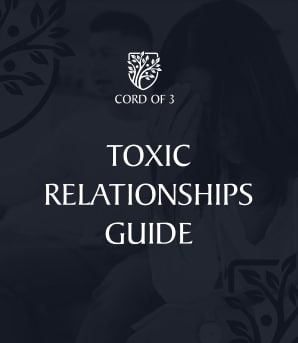DUSTY ARNOLD
Dusty is a Professional Counselor with Cord of Three Counseling Services.

Do you remember that broken down house we talked about last month? It’s taken a long time to build that foundation. Sometimes it takes so long you wonder whether you will live to enjoy the finished product at all. Having done so much working and waiting, though, you want to be sure what is built on that foundation will last. This is what Paul had in mind when he continued in 1 Corinthians 3. He warned his readers, “Let each one take care how he builds upon it.” because a revealing fire is sure to come “to test what sort of work each has done.”
As he left us, Jesus gave us the directive to make disciples. Specifically, he said “teaching them to observe all that I have commanded you.” Paul was in the midst of this discipleship work when he began talking about houses and how to build them. He acknowledged that although he labored in planting the Corinthian church, Apollos watered the plant. He built upon it. We all are called to fulfill the great commission by laboring in discipleship, and we ought to do so like skilled builders, being careful what materials we use. Some of the work will last and hold fast to the foundation, while the rest of it will be burnt away.
Have you ever heard of a McMansion? This is the term used by architects and designers to scoff at the way a lot of extravagant homes were built in the late 80s, 90s, and 2000s when people suddenly had a lot of money (or a lot of debt). To be clear, these were not the stately homes that last through the centuries. The emphasis was on the show– 27 bathrooms, 5 swimming pools, hollow columns that aren’t supporting anything, fake gold on things that should never be gold. You might think, what’s the harm? Aren’t those critics just being arrogant? Why can’t they live in what makes them happy? Trained architects, however, see a different story. Everything you build affects the integrity of the house. Ceiling height, window shape, concrete, wood, steel, or stone–it all matters. Time has taken a toll on many of these McMansions, which are now falling apart, costing enormous sums of money to maintain, and worth essentially nothing.
Beware the discipleship models that seem attractive but have no depth to them. Programs in churches can include the most entertaining games, the best food you’ve ever eaten, and endless positive reinforcement in the form of badges, awards, trips, and anything else you can imagine. All of those things draw the attention of an onlooking public, but after fires of scandal and cultural change have burned through it, will anything be left standing? Beyond church gatherings, personal discipleship is not immune to poor workmanship either. Close communal relationships, like a strong temple column, are vital to upholding the disciple-making process, but when fires of trial and disagreement burn through the relationship, will Christ be the core of that column? Or will it be found to be hollow, like the aging facade of that decayed McMansion?
So what materials should a skilled discipler use? 1 Peter gives us insight:
In this you rejoice, though now for a little while, if necessary, you have been grieved by various trials, so that the
tested genuineness of your faith—
more precious than gold that perishes, though it is tested by fire–may be found to result in praise and glory and honor at the revelation of Jesus Christ.” 1 Peter 1:6-7
So Peter tells us that faith–that is, genuine tested faith–is an even better building material than gold. When the fires come, it will not be burnt up. Instead, like other refined metals, it will be made even more beautiful. Can you imagine a house built of such a material? If it is completely engulfed in flames, it will only be more beautiful in the end! Peter goes on to say “though you do not now see him, you believe in him and rejoice with joy that is inexpressible and filled with glory, obtaining the outcome of your faith, the salvation of your souls.”
So let’s get practical. In your discipleship, what are you training others to do? Here’s a list from the last part of 1 Peter chapter 1:
- Prepare for action
- Be sober-minded
- Hope completely in the grace of Christ’s revelation
- Don’t be conformed to old passions (before Christ)
- Be holy in all your conduct
- Have a healthy fear (reverence) of God’s judgment
- Understand the great price paid for your ransom
- Purify your souls with obedience to the truth
- Love one another earnestly from a pure heart
Are you discipling others in obedience to the command of Christ? Are you being discipled? If so, does the discipleship look like this list, or is it full of things that will not matter in the long run? Let’s be clear: discipleship requires community. Jesus lived his life alongside 12 men whom he discipled. They weren’t seated in desks while he stood at the chalkboard. Rather, these conversations took place over meals, walking down the road, spontaneously when Jesus saw a tree and was hungry. At least once, it took place when his nap was interrupted. The context was community, but the content was eternity.
So as you seek to make disciples and to be discipled yourself, think carefully about the methods, and the motivations, in your discipleship. Ancient, sturdy houses had lots of attractive features, but they also had a purpose. Those columns weren’t there just to look cool. Be sure that what you are doing has purpose. “So whether you eat or drink, or whatever you do, do all to the glory of God.”1 Corinthians 10:31
